Today we go into the subject of compound interest, which can be your best friend when you’re saving and investing, but your worst enemy when you’re paying off loans and credit card balances. If you understand how compound interest works, it will change your behavior since you’ll realize the potential gains you’re giving up and also realize how much money you’re paying out in interest when you keep balances. Compound interest is the secret to becoming wealthy within your lifetime. It is the reason that anyone with a middle class income who, starting in their early twenties, is willing to sacrifice a couple hundred dollars a month to save and invest, can be a multi-millionaire before retirement. In fact, many people can become financially independent in their mid to late forties if they invest regularly due to the effects of compound interest. The secret is starting early, since compound interest works better and better the longer you use it.
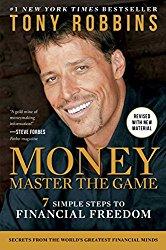
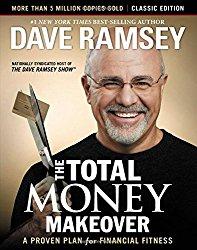
Learn to master your money with these great books from Amazon.
Well, if you invest in the stock market, you can assume that you’ll get somewhere between 10-15% annualized returns over long periods of time like 15-40 years. (Note, I make no such claim for periods of five to ten years.) You can estimate how long it will take to double your money if you know the interest rate by dividing 72 by the interest rate/annualized rate-of-return. For example, at 12% rate-of-return, your money will double every 6 years or so. Taking your original $1,000 at age 16, and assuming you add nothing else from your job, this means you’ll have in your account:
Age Balance
16 $1,000
22 $2,000
28 $4,000
34 $8,000
40 $16,000
46 $32,000
At this point you would probably be saying, “Yeah, $32,000 is nice, but you said I’d have $500,000. I’ve waited 30 years, and all I have is $32,000. What gives?”



Soundtracks from Amazon, starting a $11.86.
Here is where the magic of compounding comes in. Watch how fast the balances grow as you go from age 46 to retirement age (70 years-old):
Age Balance
46 $32,000
52 $64,000
58 $128,000
64 $256,000
70 $512,000
Notice that while you’re only making a few hundred or thousand every six years when you’re staring out, in the later years you’re making hundreds of thousands of dollars over those six-year periods. In fact, you might easily see your account grow by $100,000 or more in a single year between the ages of 64 and 70!
The basic rules of compound interest when you’re investing are:
1. Invest early. The more times your money compounds, the more you’ll have in the end.
2. You get big growth at the end, slow growth at the start. The more money you have, the more interest you’ll be generating. You may only make a few dollars at the start per month, but then hundreds or thousands of dollars per month at the end.
3. Wait as long as you can to withdraw money. Again, you’re making the most at the end, so the later you pull the money out, the more you’ll have.
Want to learn to invest in stock? Here’s some great books on the basics:
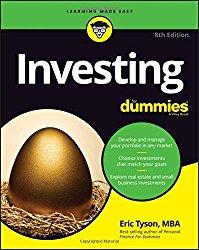
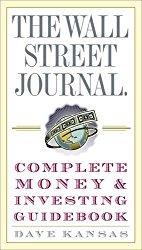
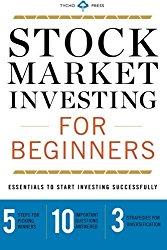
4. The higher your rate-of-return or interest rate, the more money you’ll have (by a lot). If you take the example of investing $1,000 in an IRA at age 16, but put the money in bonds at 6% instead of stocks at 12%, you’ll only have $32,000 at age 70 instead of more than $500,000. Note that you don’t have half as much – you have less than a tenth as much. This is because your money will only double every 12 years at 6% interest instead of every six years as it did at 12%. Every time it doubles, you’ll have twice as much (obviously). Double it once and you’ll have two times as much. Double it three times and you’ll have eight times as much. This is why you invest in stocks instead of putting the money in a savings account if you have many years to invest.
5. The more often your money compounds, the more money you’ll make. Interest is applied yearly, monthly, weekly, daily, or continuously. The more often the interest rate is applied, the more you’ll make. This is because the interest on your interest is generated each time the interest rate is applied. If you have a choice between two investments at the same interest rate, but one compounds daily and the other monthly, pick the daily one.
I remember a dramatic example of this published in a Richie Rich comic book back in the 1980’s. Richie Rich was asked for a donation. He said that he would give one penny the first day, and then double his donation each day for the next 30 days. A friend who saw this conversation scoffed, asking why his very wealthy friend was being so stingy with his money. The last frame of the comic shows Richie Rich giving his last contribution – a sack of money containing $10,737,418.24! That, is the power of compounding.
Get your Java on. Coffee bargains from Amazon:
Coffee Variety Sampler Pack for Keurig K-Cup Brewers, 40 Count
San Francisco Bay OneCup, Fog Chaser, 80 Single Serve Coffees
KRUPS F203 Electric Spice and Coffee Grinder with Stainless Steel Blades, 3-Ounce, Black
Why does compound interest work so well? The answer is that when you leave money in an account and allow it to compound, you start earning money not just from what you originally invested, but from the interest that builds up in your account as well. In investing parlance, this is called reinvesting. Reinvesting is very powerful since the amount that you get in interest or from capital gains from your stocks increases each year. Not only that, but the rate at which it increases grows every year. The first year you get maybe a $10 return, the second you get at $12 return, the third you get a $15 return, the fourth you get a $ $20 return, and so on. The interest on the interest from the interest from the interest from your original investment makes interest. This means that the longer you wait, the bigger your income each year will be.
Compound interest is great when you’re saving and investing, but it works against you when you’re borrowing money. That’s because then the interest that builds up in your account over the month or even over the day generates interest on itself. This means that when you’re paying back a mortgage or student loan debt, you’ll end up paying back way more than you borrowed. We’ll talk about this in the next post in this series.
This is the second post in a series on improving your financial literacy. To find the while series, select “Financial Literacy” in “Posts by Category” on the right sidebar.
Follow me on Twitter to get news about new articles and find out what I’m investing in. @SmallIvy_SI
Disclaimer: This blog is not meant to give financial planning or tax advice. It gives general information on investment strategy, picking stocks, and generally managing money to build wealth. It is not a solicitation to buy or sell stocks or any security. Financial planning advice should be sought from a certified financial planner, which the author is not. Tax advice should be sought from a CPA. All investments involve risk and the reader as urged to consider risks carefully and seek the advice of experts if needed before investing.
